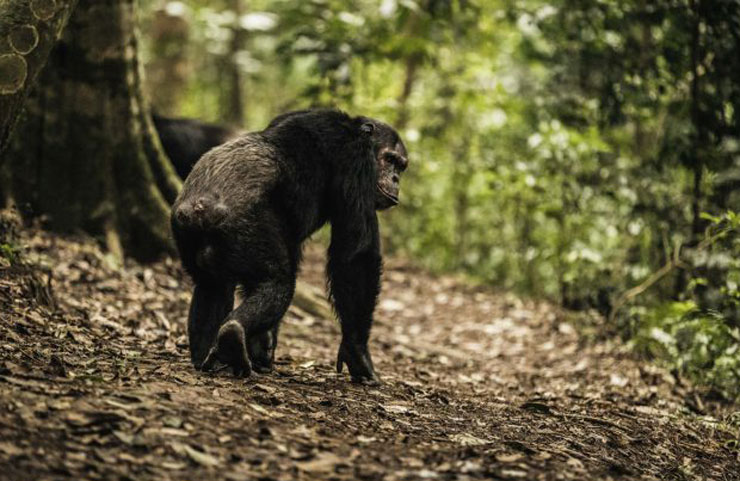How to go chimpanzee trekking in Nyungwe National Park, located in the southwestern part of Rwanda, is a biodiverse paradise that offers a unique and exciting opportunity for visitors to engage with one of our closest relatives in the animal kingdom, chimpanzees. The park is home to a thriving population of these remarkable primates, making it one of the best places in the world for chimpanzee trekking.
Chimpanzee trekking in Nyungwe begins with acquiring the necessary permits. These permits are limited in number to protect the primates and their environment. It is advisable to book your permit well in advance, as they tend to sell out quickly. Upon obtaining a permit, you’ll also receive essential information regarding the trek, such as the meeting point and time, as well as guidelines for a responsible and respectful encounter with the chimpanzees.
Before embarking on chimpanzee trekking in Nyungwe, visitors are encouraged to dress appropriately. This means wearing comfortable, moisture-wicking clothing, sturdy hiking boots, and long trousers to protect against stinging nettles and other potential hazards. It is essential to bring plenty of water and some snacks to keep your energy levels up during the trek. Don’t forget a rain jacket or poncho, as the weather in Nyungwe can change rapidly.
Chimpanzee trekking in Nyungwe is led by experienced and knowledgeable guides who are well-versed in the behavior and habitat of the chimpanzees. These guides play a crucial role in ensuring both the safety of visitors and the wellbeing of the chimpanzees. They also offer valuable insights into the lives of these primates, their social structures, and the challenges they face in the wild.
Chimpanzee trekking in Nyungwe typically begins early in the morning, as this is when chimpanzees are most active. Visitors gather at the designated meeting point, where they are given a brief orientation and an overview of the trekking rules. It’s essential to be aware of these rules, as they are designed to minimize the stress on the chimpanzees and their habitat. Common rules include maintaining a safe distance, keeping noise levels down, and not feeding the chimpanzees.
Chimpanzee trekking takes visitors through the lush, dense forests of Nyungwe National Park. It can be physically demanding due to the rugged terrain, but the anticipation of encountering chimpanzees keeps trekkers motivated. The guides use their knowledge of the chimpanzees’ behavior and their keen tracking skills to locate the primate groups. Once a group of chimpanzees is found, visitors are allowed to spend a limited amount of time observing them. This period usually lasts about an hour to avoid causing undue stress to the chimpanzees. During this time, trekkers can witness a wide range of behaviors, from grooming and playing to hunting and caring for the young. Observing the chimpanzees in their natural environment is a truly humbling and educational experience.
Chimpanzee trekking in Nyungwe is not only about the chimpanzees themselves but also about the biodiversity of Nyungwe National Park. As trekkers navigate the forest, they may encounter various other wildlife and bird species. This includes colorful butterflies, unique plant life, and the captivating songs of the park’s numerous bird species. It’s a reminder of the interconnectedness of all life within this precious ecosystem.
In conclusion, chimpanzee trekking in Nyungwe National Park is a remarkable adventure that offers visitors a profound connection with nature and our closest relatives in the animal kingdom. It is a well-organized and educational experience that allows us to appreciate the beauty and fragility of the natural world. As with any wildlife encounter, it is crucial to approach chimpanzee trekking with a sense of responsibility and respect, ensuring the continued conservation of these fascinating creatures and their habitat. Nyungwe National Park stands as a testament to the importance of preserving biodiversity and fostering a harmonious coexistence between humans and the natural world.

